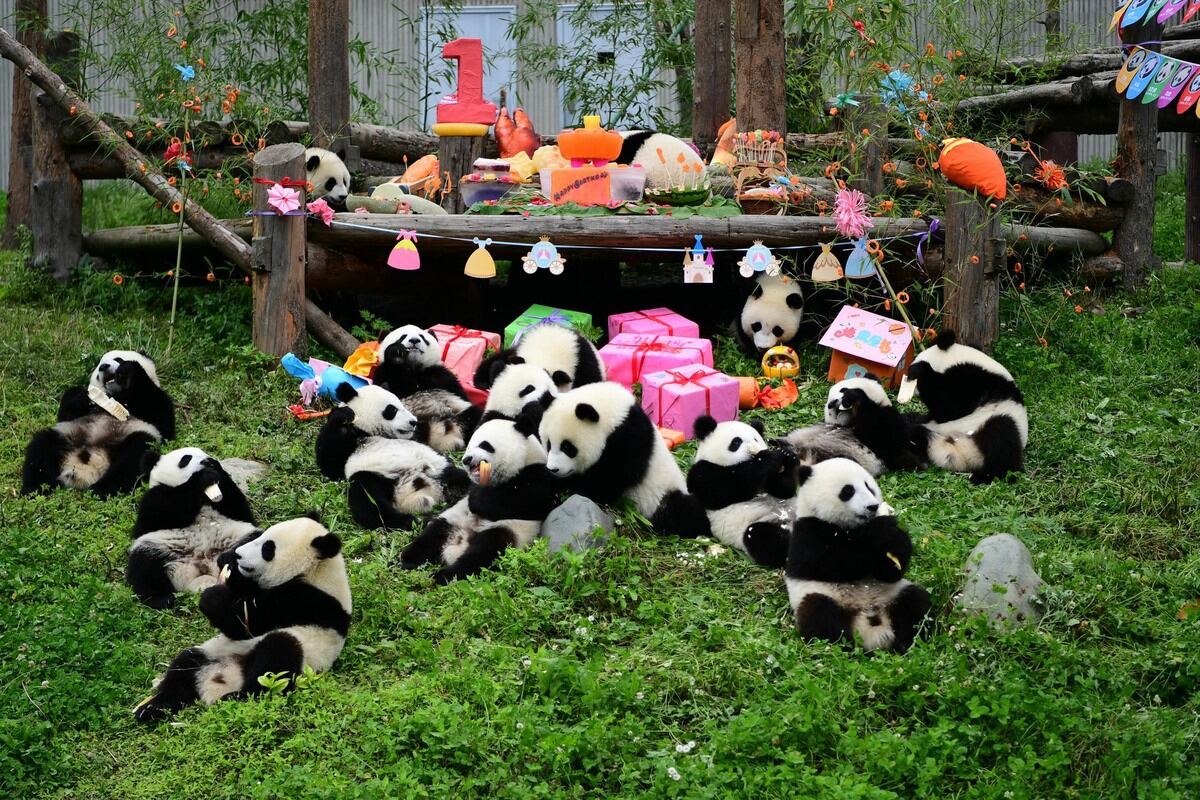
The Chengdu Research Base of Giant Panda Breeding is a world-renowned conservation facility located in Chengdu, China. As one of the most successful panda breeding centers in the world, it plays a crucial role in the preservation and protection of these beloved creatures. With its tranquil ambiance and idyllic surroundings, the research base attracts tourists and nature enthusiasts from all corners of the globe.
In this article, we will explore twelve enigmatic facts about the Chengdu Research Base of Giant Panda Breeding. From its humble beginnings to its groundbreaking research initiatives, this captivating facility has many stories to tell. So, let’s dive into the intriguing world of panda conservation and uncover the secrets of this remarkable research base.
Key Takeaways:
- The Chengdu Research Base of Giant Panda Breeding is a vital sanctuary for giant pandas, where visitors can observe them up close and learn about conservation efforts.
- The research base promotes panda conservation through breeding, education, and international collaboration, ensuring a sustainable future for these beloved creatures.
The Birthplace of Giant Pandas
The Chengdu Research Base of Giant Panda Breeding is renowned as the birthplace of numerous giant pandas. The dedicated efforts of the research base have led to successful breeding and birth of these endangered species, contributing significantly to their preservation.
A Haven for Giant Pandas
The research base serves as a haven for giant pandas, providing them with a natural and comfortable environment. Lush bamboo forests and spacious enclosures mimic their natural habitat, ensuring their well-being and fostering the breeding and conservation efforts.
Close Encounters with Pandas
Visitors to the Chengdu Research Base can get up close and personal with giant pandas. With controlled access and knowledgeable guides, tourists can observe pandas in their natural surroundings, offering a once-in-a-lifetime experience.
Breeding and Research Center
The research base is not just a sanctuary but also a breeding and research center. Scientists and conservationists work diligently to study giant pandas’ behavior, habitat, and reproductive patterns to further improve their captive and wild populations.
Protection of Endangered Species
One of the primary objectives of the base is to protect and conserve endangered species. Through extensive research and breeding programs, the research base aims to increase the population and genetic diversity of giant pandas, aiding in their survival.
Panda Kindergarten
At the Chengdu Research Base, there is a special area called the Panda Kindergarten. Here, young panda cubs explore, play, and learn crucial survival skills under the watchful eyes of caretakers. It is an adorable sight to witness these little ones in action!
Panda Breeding Challenges
Breeding giant pandas in captivity is a complex and challenging task. The Chengdu Research Base is at the forefront of tackling these challenges, using artificial insemination, behavioral study, and specialized care to ensure successful breeding and chromosomal diversity.
Panda Artistry
The research base promotes panda artistry by encouraging pandas to paint. With the help of trainers, giant pandas create colorful paintings using their paws, showcasing their creativity and intelligence.
Panda Diplomacy
Pandas are often referred to as “ambassadors of goodwill.” The Chengdu Research Base actively participates in panda diplomacy, loaning these precious creatures to other countries as a gesture of friendship and cooperation.
Educational Programs
The research base offers educational programs for visitors of all ages, aiming to create awareness about giant pandas’ conservation needs and the importance of biodiversity. These programs include interactive exhibits, presentations, and guided tours.
Bamboo Success
Giant pandas have a diet primarily consisting of bamboo. The Chengdu Research Base has made commendable advancements in bamboo cultivation and supply, ensuring a sustainable source of food for the pandas under their care.
Preservation Efforts
The Chengdu Research Base actively collaborates with domestic and international organizations to promote giant panda conservation. By sharing their expertise and knowledge, they contribute to the preservation of these enigmatic creatures worldwide.
Discovering the wonders of the Chengdu Research Base of Giant Panda Breeding is an awe-inspiring experience. The base’s commitment to panda conservation, research, and education deserves admiration. Whether you are a wildlife enthusiast or simply captivated by these adorable bears, visiting the research base is an unforgettable adventure that helps secure the future of giant pandas for generations to come.
Conclusion
The Chengdu Research Base of Giant Panda Breeding is a fascinating destination that offers a unique opportunity to learn about and observe these adorable creatures in their natural habitat. With its beautiful surroundings and dedicated conservation efforts, the base is not only a popular tourist attraction but also a crucial player in the conservation of giant pandas. Whether you are a nature enthusiast or simply love pandas, visiting the Chengdu Research Base of Giant Panda Breeding is an experience that you won’t want to miss. So, plan your trip, get ready to be enchanted by the pandas, and take home memories that will last a lifetime.
FAQs
1. How many pandas can be found at the Chengdu Research Base of Giant Panda Breeding?
The base is home to more than 80 pandas, making it one of the largest panda breeding centers in the world.
2. Can visitors hold or touch the pandas?
No, for the welfare and safety of both the pandas and the visitors, physical contact with the pandas is not allowed. However, visitors can get close to the pandas and even take pictures with them from a designated distance.
3. Is the Chengdu Research Base of Giant Panda Breeding open all year round?
Yes, the base is open every day of the year, including holidays. However, it is advisable to check their website or contact them directly for any updates on the opening hours or temporary closures.
4. Are there any guided tours available at the base?
Yes, the base offers guided tours that provide visitors with detailed information about the pandas, their habits, and the conservation efforts being undertaken.
5. Can visitors adopt a panda?
Yes, the base has a panda adoption program where visitors can symbolically adopt a panda and contribute to their conservation. The adoption package includes a certificate, updates on the adopted panda’s progress, and the satisfaction of knowing that you’re helping these incredible creatures.
Immersing yourself in the captivating world of giant pandas is just the beginning. Discover the wonders of wildlife sanctuaries, where nature thrives and animals roam free. Uncover the plight of endangered species, and learn how you can make a difference in their survival. Explore the marvels of conservation education at Twycross Zoo, where learning and adventure go hand in hand. Embark on a journey of discovery and inspiration as you unravel the mysteries of the natural world.
Was this page helpful?
Our commitment to delivering trustworthy and engaging content is at the heart of what we do. Each fact on our site is contributed by real users like you, bringing a wealth of diverse insights and information. To ensure the highest standards of accuracy and reliability, our dedicated editors meticulously review each submission. This process guarantees that the facts we share are not only fascinating but also credible. Trust in our commitment to quality and authenticity as you explore and learn with us.


